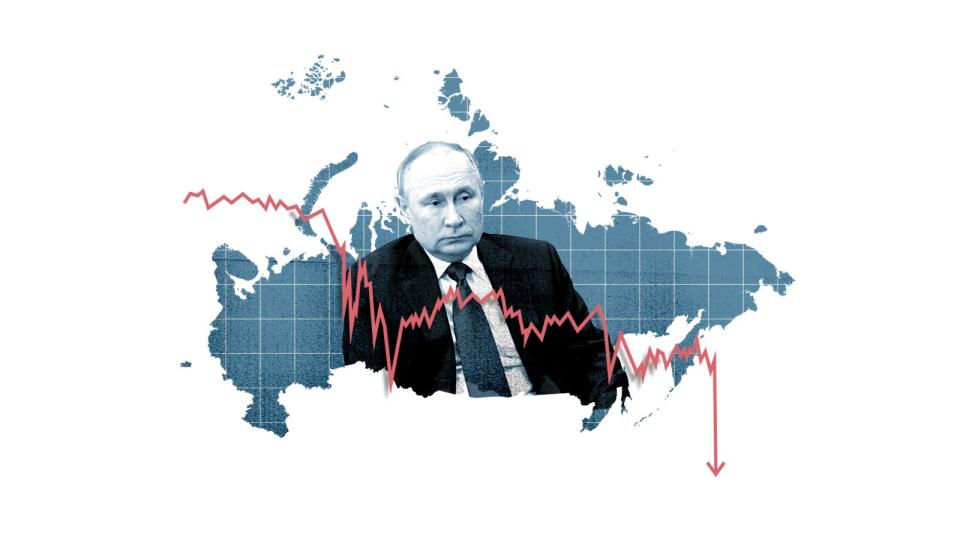'Got to get this right': Senators press administration why Russian sanctions haven't had more impact

WASHINGTON – Unprecedented sanctions against Russia for its invasion of Ukraine have wounded – but not crippled – the country, prompting bipartisan frustration in Congress that they haven’t packed a bigger punch.
Pressed on that issue at a Senate Foreign Relations Committee hearing Wednesday, Biden administration officials urged lawmakers to give the sanctions more time while also promising additional actions are in the works.
The latest
Massive sanctions: Since the February invasion of Ukraine, nearly 40 countries have imposed economics costs on Russia. Financial institutions have been sanctioned. More than 1,000 Russians have seen their assets frozen abroad. And more than 1,000 companies have stopped operating in Russia, according to New Jersey Sen. Bob Menendez, the chairman of the Senate Foreign Relations Committee.
Biggest ever: The sanctions program is the largest the U.S. has undertaken, along with allies, in scope and scale, according to Elizabeth Rosenberg, assistant secretary for terrorist financing and financial crimes at the Treasury Department.
Ruble rebounds: Despite the economic penalties, Russia’s ruble has bounced back and is stronger than it was before the invasion.
Putin scoffs: Russian President Vladimir Putin has mocked the sanctions campaign and dismissed as “stupid” a Western attempt to cap prices on Russian oil and gas.

Taking the long view
Biden administration officials said steps Russia has taken to counter the sanctions are not sustainable. Russia is running through its budget surplus and will have a deficit by the end of the year, according to Rosenberg. The administration projects that by 2030, Russia’s economy will be 20% smaller than it would’ve been without the sanctions.
Harder to measure are the impacts of the “friction and uncertainty” caused by export controls and restrictions on financing the military equipment and other goods Russians need.
“At some point, the system becomes so rickety and improvised, that it can't succeed,” said James O’Brien, head of the State Department's sanctions coordination office.
What's about to happen
Because Russia’s primary source of hard currency is oil and gas exports, the United States is working with other G7 nations on a price-capping mechanism they hope to have in place by early December. Rosenberg said the price cap has already forced Russia to negotiate steep discounts for oil it’s selling to Asian countries.
Other actions the administration is taking, she said, including going after the “broader networks of facilitators” Russia is using to buy weapons and technology. The administration also wants to plug “gaps” in sanctions in areas where some allies haven’t gone as far as the U.S. has.
Top takeaways
While senators recognized the enormous effort going into the sanctions, both Democrats and Republicans said the impact hasn’t been as great as they expected.
Figuring out why that is, and what more can be done, is important not just to help end the war in Ukraine. Lawmakers are also concerned about what lessons other countries with military ambitions – particularly China – will take away.
“We've got to get this right. China is watching and learning from our every move,” said Idaho Sen. James Risch, the top Republican on the Senate Foreign Relations Committee.

What they are saying
“We have had an impact, but it's not quite what we thought,” Menendez said.
“There will be more packages. We are working on more sanctions,” O’Brien said.
“We have to have a more clear assessment in Congress's mind and our national psyche as to just what the impact of sanctions can do,” said Sen. Mitt Romney, R-Utah.
“We were told these were going to be the toughest sanctions ever on a country and they were going to have certain impacts, and we have not seen the full impact that was described to us," said Sen. Jeanne Shaheen, D-N.H.
"If we get this wrong, we risk not only billions of dollars in U.S. and allied economic hardships, we'll also risk providing Russia with the means to completely insulate itself from future sanctions actions and continue its brutal war in Ukraine," Risch said.
Reaction to annexation
The administration could announce additional sanctions after Russia officially annexes four regions of Ukraine that were forced into sham elections.
Separately, Sens. Richard Blumenthal of Connecticut and Lindsey Graham of South Carolina introduced legislation Thursday to cut off economic or military aid to any nation that recognizes the annexation.
The bipartisan duo said they would try to pass the legislation either on its own or as an amendment to the annual Pentagon policy bill that the Senate may vote on in October.
Want to know more? Here's what you missed
Mass graves, suspected torture chambers: See what Russia left behind in Kharkiv
More: Mapping and tracking Russia's invasion of Ukraine
This article originally appeared on USA TODAY: Ukraine war: Impact of Russian sanctions disappoints federal lawmakers